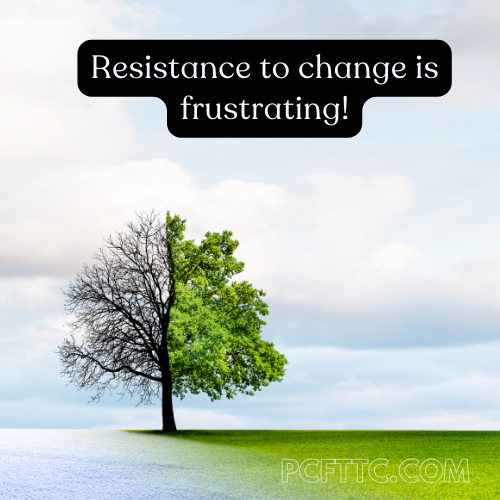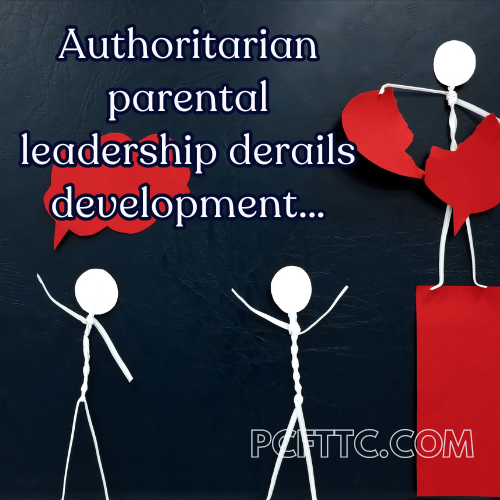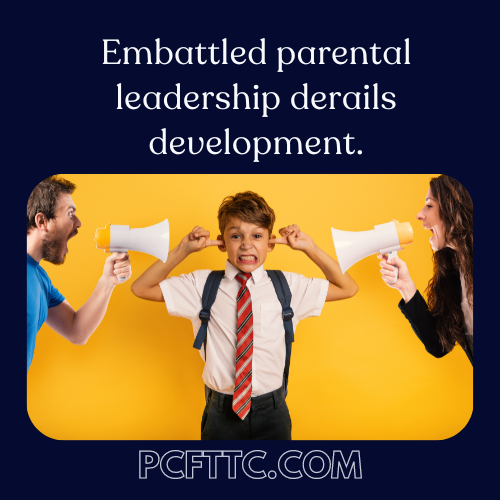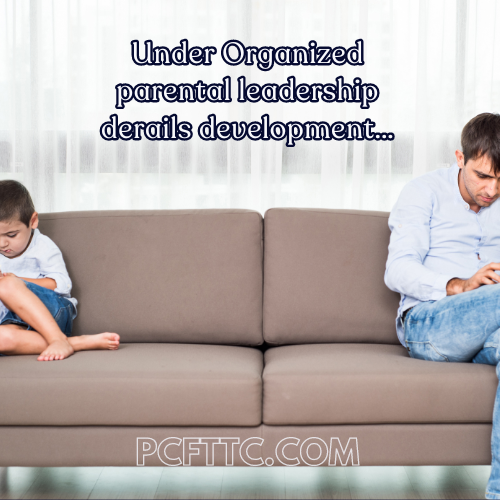Category: Resource
-
Resistance from clients can be frustrating. But what does it really mean is happening?

Resistance from clients in systemic family therapy can be particularly frustrating for therapists, but it often signals deeper underlying issues that need to be addressed. Resistance is not simply a refusal to participate or engage; it represents a complex interaction of emotions, beliefs, and dynamics within the family system.
When clients resist, it typically means that there is a significant level of discomfort or fear regarding the changes therapy might bring. For some family members, the established patterns, even if dysfunctional, offer a sense of predictability and security. Change can threaten this stability, leading to resistance. Additionally, resistance can indicate a lack of trust in the therapist or the therapeutic process. Clients may have had negative past experiences with therapy or may not yet feel safe enough to open up and be vulnerable.
Resistance also highlights the presence of conflicting motivations within the family. Each member may have different levels of willingness to change, varying degrees of insight into the issues, and diverse perceptions of the problem. This can result in some members pushing back against the process, either overtly or subtly, to protect their own viewpoints or roles within the family.
For therapists, understanding and working through resistance involves creating a safe and supportive environment where clients feel heard and understood. It requires patience, empathy, and the ability to navigate the complex web of relationships and emotions that contribute to resistance. By addressing the root causes of resistance, therapists can help clients move past their fears and engage more fully in the therapeutic process, ultimately leading to more effective and lasting change.
Joining therapeutically is a crucial technique in systemic family therapy that can significantly help with resistance to change. The process involves the therapist actively engaging with the family system in a manner that fosters trust, rapport, and a sense of alliance. Here’s how it aids in overcoming resistance: SEE NEXT BLOG INSTALLMENT FOR JOINING!
-
Enmeshed Family Systems

Enmeshment refers to family dynamics where boundaries are unclear, leading to confusion in roles and expectations. In such situations, parents may excessively depend on their children for support, hindering the children from achieving emotional independence and separation from their parents.
Children raised in enmeshed families often struggle with low self-esteem and a lack of personal identity. They may find it difficult to establish and maintain healthy relationships outside the family, as they have never learned how to set appropriate boundaries or advocate for their own needs.
As adults, they might continue to feel responsible for their parents’ happiness, leading to feelings of guilt and anxiety whenever they prioritize their own needs. This can manifest in various ways, including difficulty making decisions independently, a tendency to seek constant validation from others, and an overwhelming fear of rejection or abandonment.
Healing from enmeshment involves learning to set and maintain healthy boundaries. This can be a challenging process, but it’s essential for developing a strong sense of self and building healthier relationships. Here are some steps that can help:
- Recognize the problem: The first step towards healing is acknowledging that enmeshment exists and understanding its impact on your life.
- Seek professional help: A therapist can provide valuable guidance and support as you work through the complexities of your family dynamics and develop healthier patterns.
- Establish boundaries: Start by identifying areas where boundaries are needed and practice setting them. This might involve limiting the amount of personal information you share with your parents or asserting your need for independence.
- Focus on self-care: Prioritize activities and relationships that support your well-being and personal growth. This could include pursuing hobbies, spending time with supportive friends, or engaging in self-reflection.
- Develop a sense of identity: Explore your interests, values, and goals separate from your family’s expectations. This can help you build a stronger sense of who you are and what you want out of life.
- Practice saying no: Learning to say no without feeling guilty is crucial for maintaining healthy boundaries. Remember that it’s okay to prioritize your own needs and well-being.
- Build a support network: Surround yourself with people who respect your boundaries and support your journey towards independence.
Remember, healing from enmeshment is a gradual process that requires patience and persistence. By taking these steps, you can begin to reclaim your sense of self and create a more balanced and fulfilling life.
-
Join BuildaBridge and a world-class cadre of drummers and shake loose the summer’s heat.

Ubuntu Fine Art Gallery: 5423 Germantown Ave Philadelphia, PA 19144
RSVP HERE: July 25, 2024 @ 5:00PM — 7:00PM
Join BuildaBridge and a world-class cadre of drummers and shake loose the summer’s heat. For two hours, you’ll learn and experience the power of drumming. Expect to join as an individual and leave as a valued member of a drumming community (and much more).
The session will be facilitated by:
Robert Kenyatta
Bobby Conga
Omomola Iyabunmi
Sam ZoltenWhether you’re a seasoned percussionist or a complete novice, our sessions are designed to be inclusive and welcoming for everyone. Our instructors bring a wealth of experience and passion, ensuring that each beat resonates with joy and connection. The rhythms we create together will not only invigorate your spirit but also foster a sense of unity and belonging.
As you immerse yourself in the pulsating beats, you’ll discover new rhythms within yourself and build lasting friendships with fellow drummers. The communal aspect of drumming has been shown to reduce stress and enhance well-being, making it a perfect way to unwind and connect with others.
So, mark your calendars and join us for an unforgettable drumming experience. Let the rhythm guide you, let the music heal you, and let the community embrace you. We look forward to welcoming you to our circle and creating beautiful music together.
-
Authoritarian Family Systems

Authoritarian parenting is a strict approach that sets high standards for children. Parents following this style establish inflexible rules without explanation, expecting unquestioning obedience or facing harsh consequences. Children comply due to the fear of repercussions for non-compliance.
Authoritarian parents lack nurturing and flexibility, viewing obedience as a form of affection. Communication tends to be one-sided, discouraging children from expressing themselves and prohibiting any form of backtalk.
While setting boundaries is beneficial, research indicates that authoritarian parenting can have adverse effects on children, such as:
- Emotional and behavioral issues
- Poor social and decision-making skills
- Depression and anxiety
- Aggression
- A strong sense of failure
- Low self-esteem
- Increased susceptibility to suicide compared to other children.
In contrast, authoritative parenting, which combines high expectations with support and open communication, promotes healthier emotional and social growth in children. Authoritative parents establish clear rules while providing explanations, encouraging children to inquire and share their opinions. This balanced approach fosters a sense of responsibility and self-discipline, as well as feelings of appreciation and comprehension.
Children raised by authoritative parents demonstrate enhanced self-esteem, improved social abilities, and better academic performance. They learn to tackle challenges confidently and are more likely to mature into well-adjusted adults. The nurturing environment created by authoritative parenting cultivates resilience and a solid sense of self, equipping children with the skills necessary to excel in various aspects of life.
Ultimately, while boundaries and expectations are crucial, the manner in which they are conveyed and upheld significantly impacts a child’s development. By cultivating an environment of mutual respect and understanding, parents can assist their children in evolving into self-assured, competent, and emotionally stable individuals.
Resource: https://www.webmd.com/parenting/authoritarian-parenting-what-is-it
-
Embattled Family Systems

Embattled family systems result in the child becoming emotionally responsible for soothing the caregiver they are with by proving their allegiance to them. This dynamic can place an immense burden on the child, as they are thrust into a role far beyond their years. The child’s own emotional needs may be neglected, leading to a sense of invisibility and unworthiness. Over time, this can manifest in various ways, such as difficulty forming healthy relationships, low self-esteem, and an internalized belief that their value is tied to their ability to care for others.
However, it is important to recognize that these patterns, while challenging, are not immutable. With the right support, individuals can learn to break free from these cycles and develop a more balanced and self-compassionate approach to relationships. Therapy, self-reflection, and building a supportive network can all play crucial roles in this healing process.
As we grow in our understanding of these dynamics, it becomes clear that nurturing environments where children can be children—free to explore, express, and be themselves—are essential for fostering emotional well-being. By prioritizing healthy boundaries and communication within families, we can create a foundation for resilience and emotional health that benefits not just the individual, but the entire family system. Through patience, empathy, and a commitment to change, even the most embattled family systems can find a path to harmony and resilience, creating a stronger, more connected future.
Recommended Readings:
Schmid J. The family today: sociological highlights on an embattled institution. Europ Demogr Inf Bull. 1982;13(2):49-72. PMID: 12264352. https://pubmed.ncbi.nlm.nih.gov/12264352/
-
Under-Organized Family Systems

Families that lack organization exhibit inconsistency and disorder, resulting in a chaotic environment without clear leadership. In such households, children are at risk of experiencing abuse, neglect, and various behavioral and emotional challenges both at home and in the community. Caregivers in these families establish minimal rules and rarely enforce them. They prioritize being friends with their children rather than serving as authority figures, leading to a lack of monitoring and discipline. Additionally, caregivers often neglect to establish routines, rules about snacking, and assign chores. Consequently, children may find themselves having to make decisions at a young age without the necessary guidance, potentially opting for choices like having two chocolate sundaes for breakfast.
This absence of structured guidance can further impede the development of essential life skills, such as time management, responsibility, and self-discipline. Over time, these children might struggle academically and socially, as they are not equipped with the necessary tools to navigate the demands of school and peer relationships effectively.
On the other hand, fostering a balanced and structured environment doesn’t mean eliminating warmth and flexibility. It involves setting clear, consistent expectations while also providing the love and support that children need to thrive. Effective caregivers can strike this balance by establishing routines, assigning age-appropriate chores, and setting boundaries that are enforced with kindness and understanding.
By doing so, caregivers help children develop a sense of security and predictability, which is crucial for their emotional well-being. Children learn to understand the consequences of their actions, develop problem-solving skills, and gain confidence in their ability to make informed decisions.
Ultimately, creating a harmonious household where structure and love coexist can significantly enhance the overall dynamics of the family, fostering a nurturing environment where every member feels valued, respected, and empowered to succeed.
-
Self Awareness to Happiness Ratio…
I think this sounds a lot like “Person of the therapist….”
-
Suicide Prevention Summary

What is Risk?
PCFTTC leadership attended the Thomas Jefferson University. They heard from several suicide prevention experts (Dr. Berman; Dr. Anestis; Dr. Zullo). It is clear from the program YOU CAN’T PREDICT RISK, but you can be a “reasonable and prudent clinician.” And continuing to understand risk screening, assessment, the literature, and formulation are key to clinical work, as 1 in 3 professionals will have a client who kills themselves.
Several Important take aways:
- Imminent risk is a legal word, not a clinical word.
- A suicide screener (ASQ; Columbian) is not a suicide risk assessment.
- Risk assessments involves as many resources as possible (collaterals too).
- A suicide risk assessment isn’t a risk formulation.
- Risk formulation is necessary to prove you are being a “Reasonable and Prudent Clinician.”
- Risk formulations informs the entire treatment plan process/response plan/crisis plan.
- A full risk assessment should be done on everyone, even when they don’t endorse on a suicide screener because it data. Data informs the risk formulation, that informs the clinical approach.
- 95% of people who attempt suicide with a firearm die. Create means safety!
-Example NIH Decision Tree-
Do you see Screener vs. Assessment vs. Formulation?
Suicide Prevention Resources
National Suicide Prevention Lifeline
1-800-273-TALK (8255)
Spanish/español: 1-888-628-9454Crisis Text Line
Text HOME to 741-741Suicide Prevention Resource Center